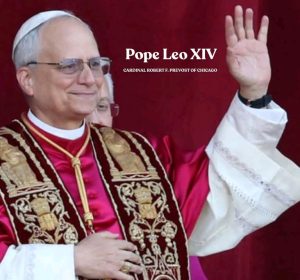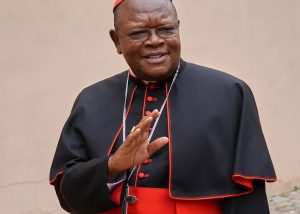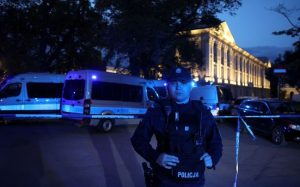Tunisia’s Presidential Election: A Foregone Conclusion Amidst Autocratic Rule
3 min read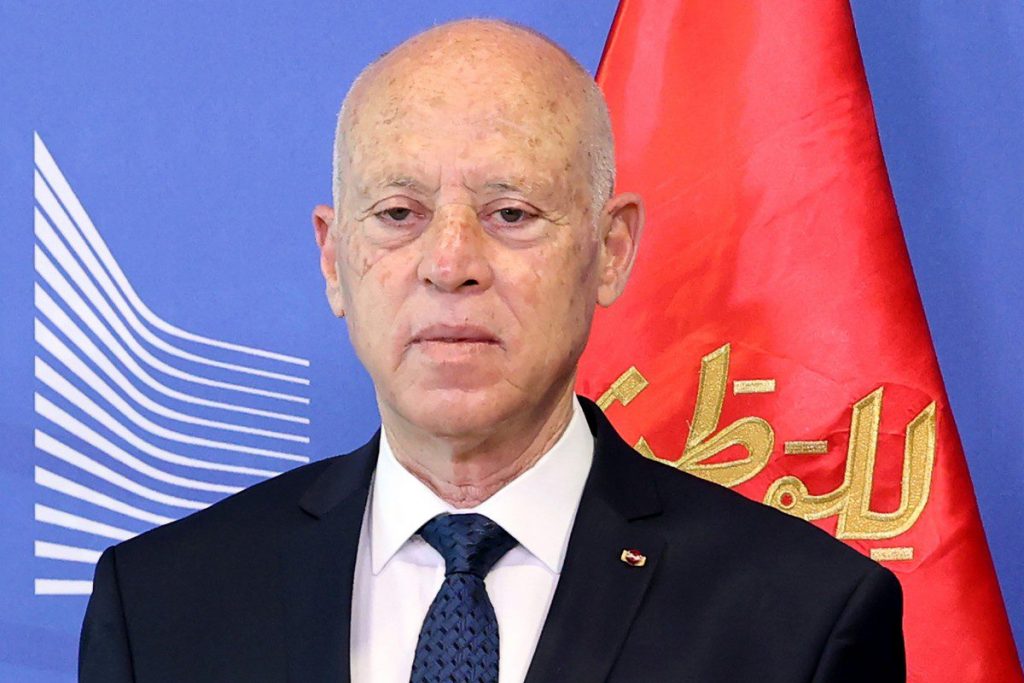
Tunisia’s President Kais Saied is poised to seek re-election in an election on Sunday, with most observers predicting a certain victory for him. While numerous politicians had expressed interest in challenging Saied, the electoral commission has approved only two additional candidates for the ballot, limiting genuine competition.
One of these candidates, Ayachi Zammel, faces significant legal challenges, having been sentenced to 12 years in prison for document falsification just days before the election. Despite this, his name will still appear on the ballot, as he has denied the charges against him.
Since Saied was elected in 2019, he has suspended parliament, rewritten the constitution, and centralized power, drastically shifting Tunisia’s political landscape. Once heralded as a beacon of hope following the Arab Spring uprisings in 2010, Tunisia now finds itself grappling with authoritarian governance.
This election marks the third presidential contest since the ousting of Zine al-Abidine Ben Ali, who ruled for over two decades before being forced to flee amid widespread protests. Political analyst Sarah Yerkes from the Carnegie Endowment for International Peace observes that Saied has manipulated the political and legal framework so effectively that “there is no contest – he is the only viable candidate.” The lack of campaign rallies or public debates, alongside the preponderance of Saied’s campaign posters, reinforces this notion.
The opposition landscape is grim, particularly for the Ennahda party, Tunisia’s largest opposition group. Members of Ennahda have faced unprecedented arrests, contributing to a climate of fear and repression. Human Rights Watch has reported that authorities have systematically excluded several potential candidates through legal action, curbing the democratic process. Protests have erupted in Tunis, with citizens demanding free and fair elections.
The other candidate, Zouhair Maghzaoui, a former lawmaker, initially supported Saied’s consolidation of power but has since turned into a critic. Human rights advocates have voiced concerns about a “pre-election assault on the pillars of human rights” in Tunisia, as stated by Amnesty International’s Agnès Callamard. Yerkes adds that Saied has “steadily dismantled a decade’s worth of democratic progress.”
When Saied first assumed office, he was celebrated as a legal scholar who won over 70% of the vote, promising to usher in “a new Tunisia.” His populist appeal was rooted in representing the marginalized and vowing to address corruption and revive the economy. However, his approach took a dramatic turn in 2021, when he effectively initiated a “self-coup” by dismissing parliament and assuming full executive authority.
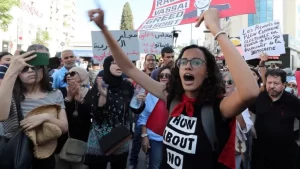
Justifying his actions, Saied claimed he needed extraordinary powers to overcome political stagnation and economic decline. He insisted in a New York Times interview that he had no desire for autocratic rule, invoking the legacy of former French President Charles de Gaulle to deflect such accusations.
Under Saied’s leadership, Tunisia has plummeted from 53rd to 82nd place on the Economist Intelligence Unit’s democracy index, indicating a severe regression in political freedoms and pluralism. Analysts contend that Tunisia has effectively returned to autocracy, and public discontent is growing amid rising unemployment, which stands at 16%, according to the World Bank.
The economic turmoil has driven many young people to seek opportunities abroad, making Tunisia a critical launch point for migrants heading to Europe. UN data reveals that at least 12,000 migrants who reached Italy last year departed from Tunisia, prompting the European Union to provide $118 million in aid to bolster border security and combat smuggling.
Saied’s populist rhetoric has also shifted blame onto migrants, alleging that they are part of a “plot” to alter the country’s demographic makeup, which has incited a wave of racist violence against sub-Saharan Africans in Tunisia. While some support Saied’s narrative, it has alienated others, leading to anti-racist protests in response.
As Saied campaigns on promises to enhance healthcare, transport, and social security, the overall mood is one of apathy. Voter turnout for previous elections has been dismal; only 11% of the electorate participated in the last parliamentary vote, and analysts predict similarly low engagement this time.
With official results expected within three days after the election, the outcome appears all but assured. As Tunisia navigates this critical juncture, the consolidation of power by President Saied raises pressing questions about the future of democracy and human rights in the country.


